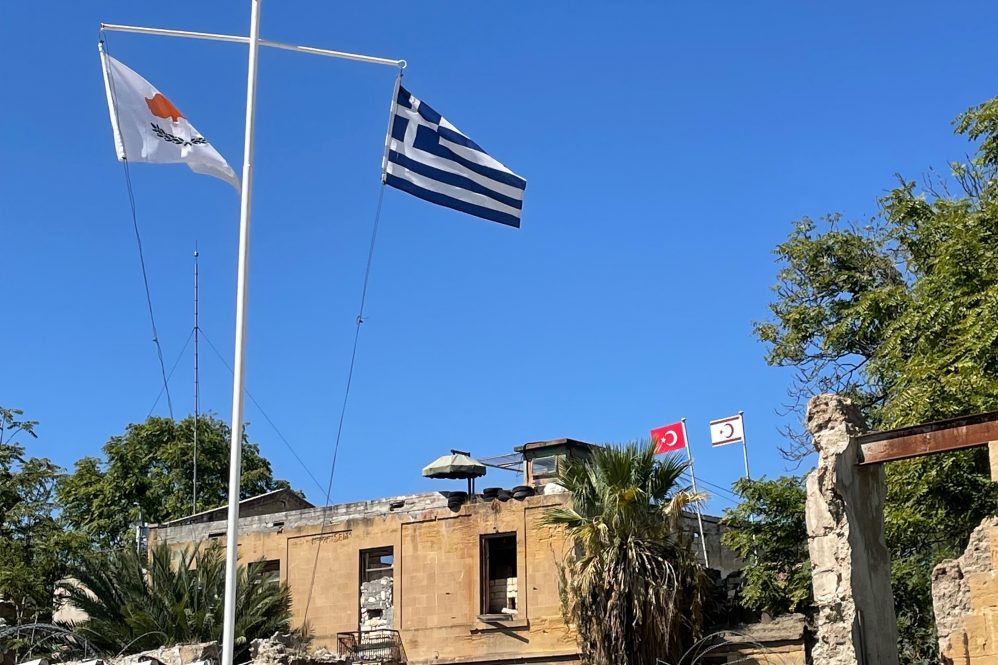The United Nations peacekeeping force in Cyprus is one of the oldest in the organisation. Present on the territory of this small Mediterranean island since 1964, its mandate was renewed again on 30 January. This decision is symptomatic of the stalemate in the Cypriot crisis. Since 1974, the country has been divided in two on either side of the Green Line, with the self-proclaimed Turkish Republic of Northern Cyprus in the north and the Republic of Cyprus in the south. Negotiations to achieve the reunification of the island have reached an impasse, and no political solution seems to be on the horizon. But to understand the complexity of the situation that no UN Secretary General or diplomat has managed to resolve, a return to the origins of the crisis that divides this EU member state seems necessary.
In 1570, Cyprus came under Ottoman rule. The Empire then extended over the whole of the Near East, part of North Africa, the Balkans and the southern Caucasus. It was at this time that what is today the Turkish Cypriot community emerged through large population movements. Almost 300 years later, in 1878, the island came under British administration, but remained part of the Ottoman Empire. When the latter rallied to the side of Germany and Austria-Hungary in 1914 during the First World War, Great Britain annexed Cyprus. It was not until the Treaty of Lausanne in 1923 that Turkey definitively abandoned the island, which became a colony of the British Empire in 1925. Although independence was not achieved, this did not prevent the national question from being at the forefront of the inhabitants’ concerns. For the two communities on the island, Greek Cypriots and Turkish Cypriots, who had lived together peacefully for almost three centuries, the emergence of two contradictory phenomena marked the beginning of tensions. In the early 1930s, the Greek Cypriots demanded enosis (union with Greece). The revolt was suppressed by colonial Britain, but this did not extinguish all contestation. In 1950, a referendum was held to ask the Greek Cypriot community whether or not they wanted the island to be part of Greece. The yes side won by an overwhelming majority, as the process had not been authorised by the British authorities. Five years later, some Greek Cypriots joined the EOKA (National Organisation of Cypriot Fighters) and launched an armed struggle in the form of a guerrilla war against the colonial power and the Turkish Cypriots, who also rejected any attachment to Greece. In the same year, the London Conference marked the beginning of the internationalisation of the Cyprus question: bringing together the foreign ministers of Great Britain, Greece and Turkey, this tripartite summit tried to envisage a solution to the impasse, without success.
At the same time, the Turkish Cypriot minority, under the influence of Turkey, wanted to secede from the island and was opposed to enosis. In 1958, the Turkish Resistance Organisation, the TMT (Türk Mukavement Teskilati) was created, which can be considered as the counterpart of the Greek Cypriot EOKA.
Independence and inter-communal violence
Following the clashes between the two communities, negotiations began and led to the Zurich and London agreements in 1959. The Greek and Turkish Prime Ministers agreed to a plan for the independence of Cyprus, which would take the form of a Republic headed by a Greek Cypriot President and a Turkish Cypriot Vice-President. Three major treaties govern the functioning of the future new state. The Treaty of Guarantee prevents any union with another country, either Greece or Turkey, or the division of the island between the two neighbouring powers. The Treaty of Establishment is the Constitution of the Republic of Cyprus, and finally the Treaty of Alliance sets out the framework for cooperation between the Hellenic Kingdom, Turkey and the island. Thus, on 16 August 1960, British colonisation came to an end, although two sovereign military bases remained on the island: Cyprus became independent.
Vous devez souscrire à un abonnement EurasiaPeace pour avoir accès au contenu - Prendre votre abonnement






